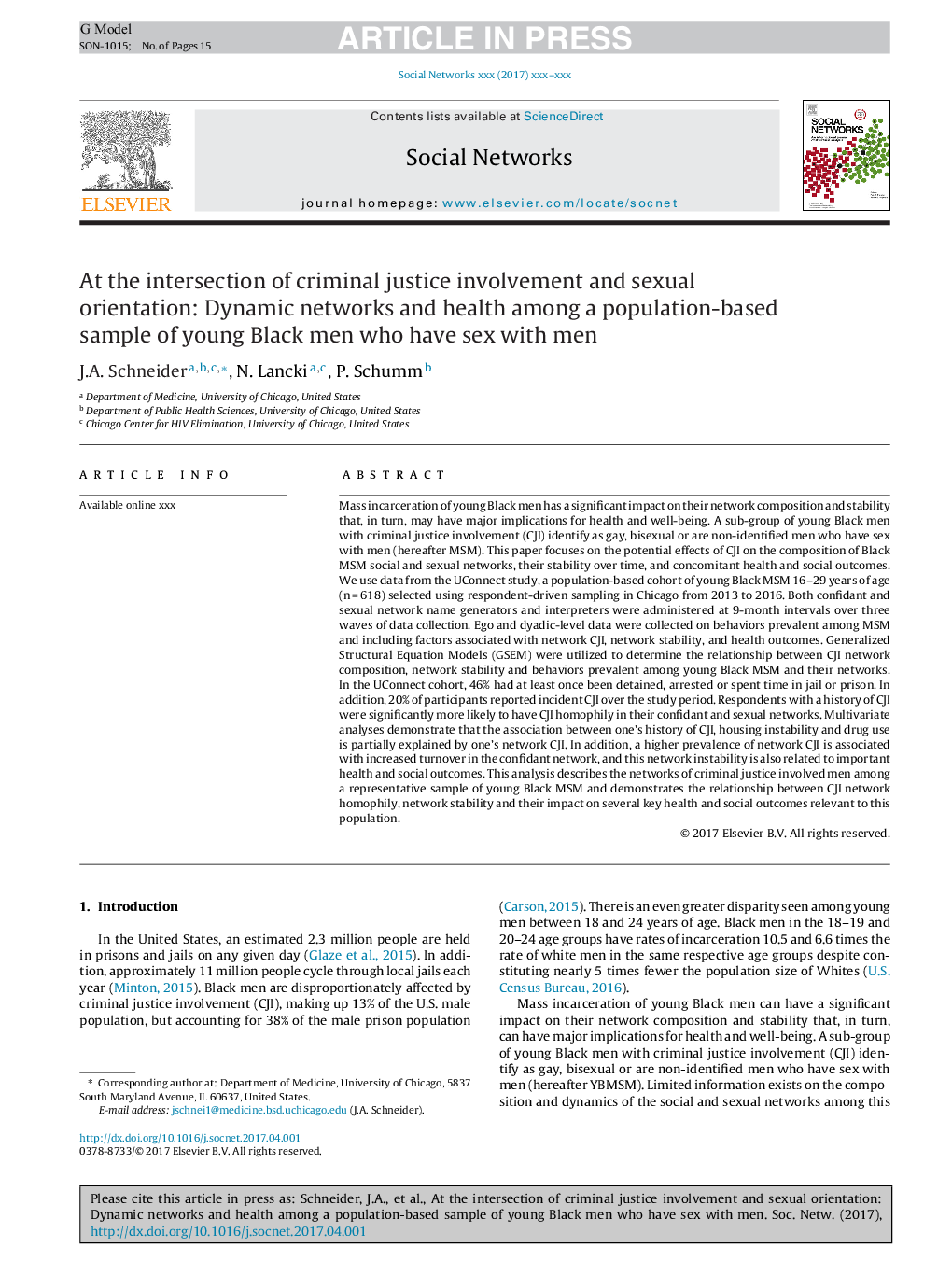ترجمه فارسی عنوان مقاله
در تقاطع عدالت کیفری و گرایش جنسی: شبکه های پویا و سلامت در میان نمونه های مبتنی بر جمعیت سیاه پوست مردان جوان که با مردان رابطه جنسی دارند
عنوان انگلیسی
At the intersection of criminal justice involvement and sexual orientation: Dynamic networks and health among a population-based sample of young Black men who have sex with men
| کد مقاله | سال انتشار | تعداد صفحات مقاله انگلیسی |
|---|---|---|
| 130592 | 2017 | 15 صفحه PDF |
منبع

Publisher : Elsevier - Science Direct (الزویر - ساینس دایرکت)
Journal : Social Networks, Volume 51, October 2017, Pages 73-87

